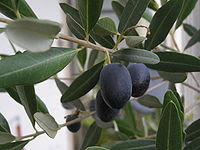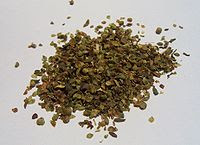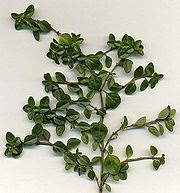Greek cuisine has a long tradition and its flavours change with the season and its geography. Greek cookery, historically a forerunner of Western cuisine, spread its culinary influence - via ancient Rome - throughout Europe and beyond. It has influences from the different people's cuisine the Greeks have interacted with over the centuries, as evidenced by several types of sweets and cooked foods.
It was Archestratos in 330 B.C. who wrote the first cookbook in history. Greece has a culinary tradition of some 4,000 years. Ancient Greek cuisine was characterized by its frugality and was founded on the "Mediterranean triad": wheat, olive oil, and wine, with meat being rarely eaten and fish being more common. This trend in Greek diet continued in Roman and Ottoman times and changed only fairly recently when technological progress has made meat more available. Wine and olive oil have always been a central part of it and the spread of grapes and olive trees in the Mediterranean and further afield is not uncorrelated with Greek colonization.
The Byzantine cuisine was similar to the classical cuisine including however new ingredients that were not available before, like caviar, nutmeg and lemons, with fish continuing to be an integral part of the diet. Culinary advice was influenced by the theory of humors, first put forth by the ancient Greek doctor Claudius Aelius Galenus. Byzantine cuisine benefited from Constantinople’s position as a global hub of the spice trade.










Δεν υπάρχουν σχόλια:
Δημοσίευση σχολίου